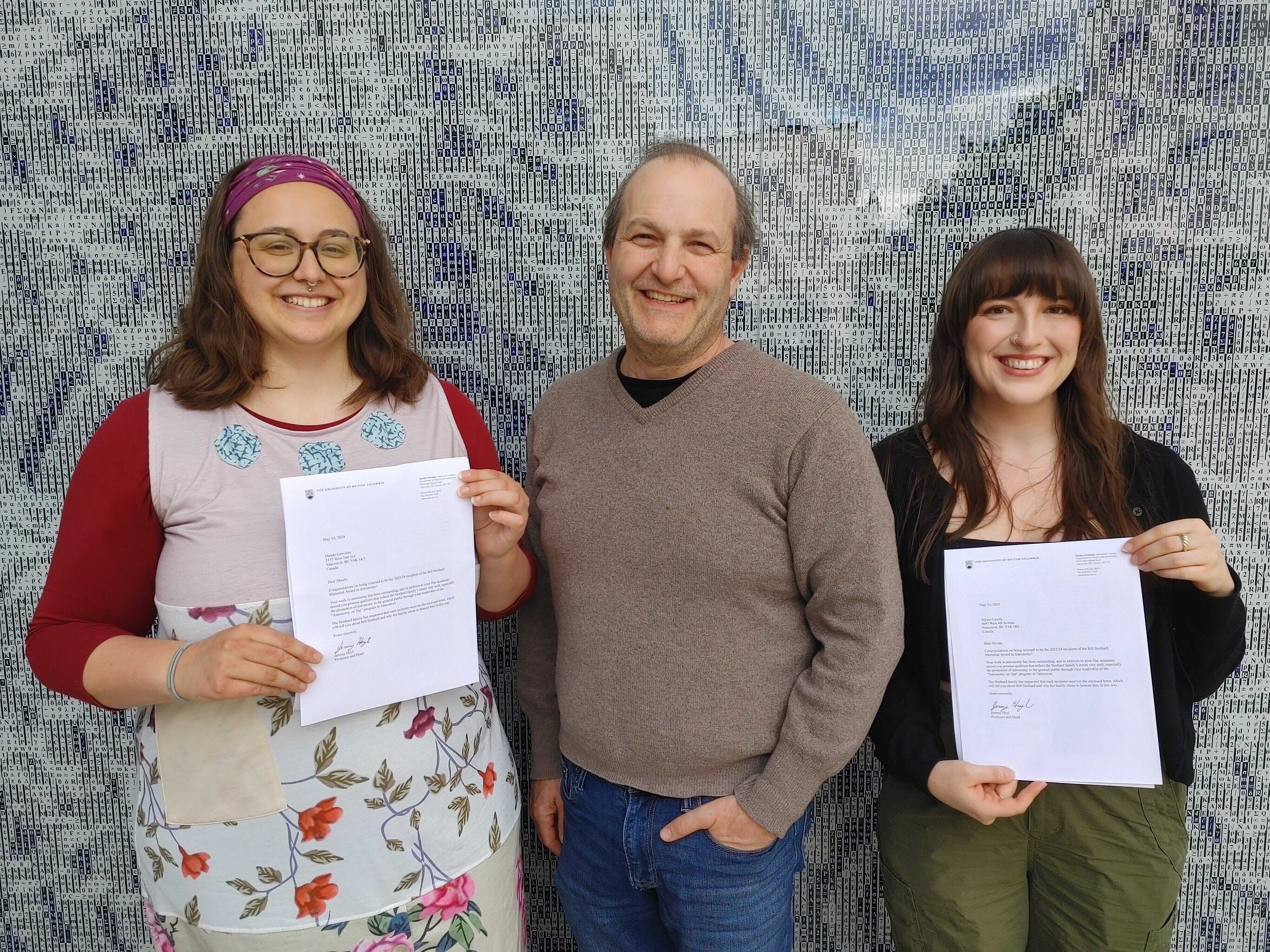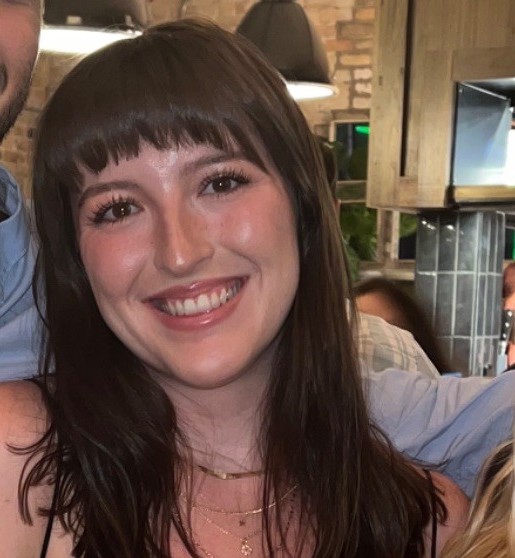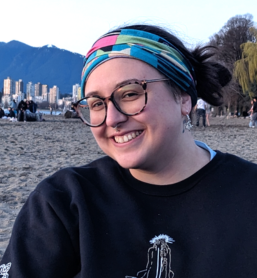
Maude Lariviere, Jeremy Heyl (PHAS Department professor and Head) and Alyssa Cassity, May 2024
Alyssa Cassity

I am a 2nd year Masters student working with Professor Ingrid Stairs. My research focuses on radio pulsars, the rapidly spinning relics left behind after the supernovae explosions of massive stars. They have an enormous dipolar magnetic field that accelerates particles, causing beams of radiation from each pole. As the pulsar spins, a beam of radiation sweeps across Earth like a lighthouse, causing a pulse of emission that we can detect with radio telescopes. I work with CHIME/Pulsar studying these cosmic lighthouses and conducting pulsar timing.
I had the idea early into my Master's degree to start an Astronomy on Tap chapter here in Vancouver, and recruited Maude to help bring astronomy to our community in a casual, accessible environment. Since then we've had a few highly successful events, and our chapter continues to grow as more graduate students and community members get involved.
You can read more about Astronomy on Tap here: https://astronomyontap.org/
Maude Lariviere

My interest in astronomy and astrophysics started when I visited the Mont-Mégantic Observatory in southern Québec when I was 17 years old. Not only did it make me fall in love with the science itself, but it was also my first real contact with how important outreach can be. Since then, I’ve been doing science communication every chance I get; even returning to the observatory where it all started as an astronomy guide for 4 summers. So when Alyssa approached me regarding Astronomy on Tap Vancouver, I was very excited to help bring it to life!
I’m currently working on finishing my MSc here at UBC and TRIUMF, working under Nicole Vassh. I study the synthesis of the heaviest elements in the Universe and how it relates to the potential observables, with a focus on a process called the rapid neutron capture process (r-process). Basically, I use models of very small things (nuclei and their nuclear physics properties) and propagate that through astrophysical conditions to see how that shapes the abundance of elements in the Universe. I also work on understanding how we could detect the signatures of nucleosynthesis and what kind of signal we could hope to see in events such as neutron star mergers.